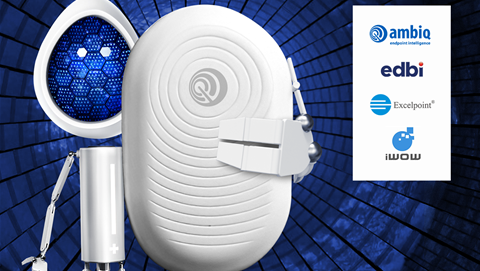Singapore-based Meta Health Ltd planning to plug into the healthcare ecosystem in the metaverse through a partnership with medical technology company Aimedis.
The Netherlands located Aimedis is a blockchain medical company that has established what it calls the Aimedis medical city in the metaverse.
Hospitals and accredited medical service providers can open virtual clinics and provide services within the Aimedis platform by leasing agreements based on a non-fungible tokens (NFT) marketplace.
An NFT is a non-interchangeable unit of data stored in a blockchain, which is a form of digital ledger which can be sold and traded.
Technology companies, such as Facebook, are currently spending significant sums of money in building the metaverse, a virtual universe that blends various digital technologies like blockchain, videoconferencing, virtual reality, cryptocurrencies, social media and live-streaming.
Platform interoperability is increasing, thus allowing a slew of companies to provide services within the virtual platform.
Meta Health’s partnership with Aimedis will see its fully-owned healthcare company, 5Digital Pte Ltd, which provides telemedicine service and runs a medical IoT (internet of things) platform in Singapore and Indonesia, embedded within the virtual Aimedis medical city.
This would enable blockchain-based storage of medical data uploaded from medical IoT devices as well as doctor consultation data from 5Digital.
Aimedis, on its part, will receive a royalty on the NFTs and spaces created together with 5Digital in the virtual medical city.
The partnership gives 5Digital an option to invest up to 25 percent of the next equity fundraising exercise by Aimedis.
SGX listed company
Meta Health is listed on the Catalist exchange of the Singapore Stock Exchange (SGX).
In January this year, the company changed its name from Metal Component Engineering Limited following a resolution at its extraordinary general meeting.
The move was in line with the organisation pivoting its business towards healthcare and e-commerce from mechanical manufacturing solutions.
The diversification started last year with investments in companies operating in the health and wellness sectors as well as e-commerce.
5Digital’s chief medical officer, Dr Vas Metupalle, said the company has plans to set up a virtual outpatient medical centre that will connect with specialists based in the Orchard Road district in Singapore.
It will also have a fitness studio, and an event hall for health talks and healthy cooking demonstrations.
The structure will be ready in mid-March and will have web-based access through 3D devices like Oculus Quest 2.
Dr Metupalle said there are plans to bring hospital expertise to homecare within Singapore with data from Cedar Sinai Medical Centre in the US and other service providers.
“We see immediate use cases in neuro-rehabilitation, which have been validated in Europe, and its contents can be localised for the region," he said.
“This platform will be a perfect addition within the smart cities planned for Indonesia with 5G network rollout and digital focus on services.
"We look forward to building a regional network for these virtual medical spaces to bridge the gap in access to specialist care."
Dr Metupalle added that there are plans for collaboration with a physio group in Singapore for rehabilitation for home-based elderly patients with carer support during sessions.
“They will have space in the virtual medical centre as well as the option for a second opinion, through a UK-based neuro-rehab group, on therapies and content, from mid-March onwards,” he said.
Aimedis was founded by two doctors, Dr Michael J. Kaldasch and Dr Ben J.O. El Idrissi, in 2017.
It is a blockchain-based health record platform and has developed NFTs in the healthcare space together with the virtual medical city platform.
Dr Kaldasch said that his company has seen increased traction in the metaverse and saw the deal with 5Digital as an opportunity to help communities “have localised health and wellness spaces”.
He added: “We see a lot of synergy and dynamism in the 5Digital team, with the integrated healthcare data approach between telemedicine, medical IoT and social commerce.
"We look forward to partnering and building a regulated and secure environment for access to quality healthcare across Asia.”
Aimedis currently provides neuro-rehabilitation services through a partnership with a university hospital in the UK and several hospitals in Germany have used its blockchain-based electronic medical records system.
Aimedis has expanded to the United Arab Emirates and is working with a property company there to build a virtual medical centre.
Dr Metupalle noted that Aimedis needs a panel of online professionals and “5Digital is seen as complementary as we have doctors who can provide telemedicine services, and we have an IoT-device based platform integrated into telemedicine, allowing increased flow of data”.
According to analysts, there is a lot of potential in providing healthcare through the metaverse as it combines various cutting edge technologies like artificial intelligence (AI), virtual reality (VR), internet of medical devices, web 3.0, intelligent cloud and quantum computing along with robotics.
There has been an increased readiness to use digital means to access healthcare needs during the Covid-19 pandemic and as a result the medical travel industry, particularly in Singapore, has suffered a setback.
By using digital channels, Singapore could regain its status as the key regional medical hub with specialist doctors who have global expertise, Dr Metupalle said.
Significant potential
Natalie Schibell, a senior analyst at Forrester, said the metaverse offered significant potential as a channel for healthcare delivery.
However, data privacy regulations and concerns, the high cost of equipment, and the interoperability conundrum will hinder market expansion over the next decade, Schibell said.
“The greatest challenge with the metaverse is the security of patient data," she told iTnews Asia.
"Healthcare is the most attacked industry today with the highest average cost of a data breach and the slowest incident response time."
The analyst added that healthcare organisations, technology vendors, and the government will need to solve the pervasive, persistent problem of interoperability.
“A fragmented healthcare system of siloed, unstructured data is no place for a metaverse which will rely on the unification of data, patient history, diagnostics, and provider coordination to prevent disruptive, duplicative care and the promise of data-driven outcomes,” Schibell said.









